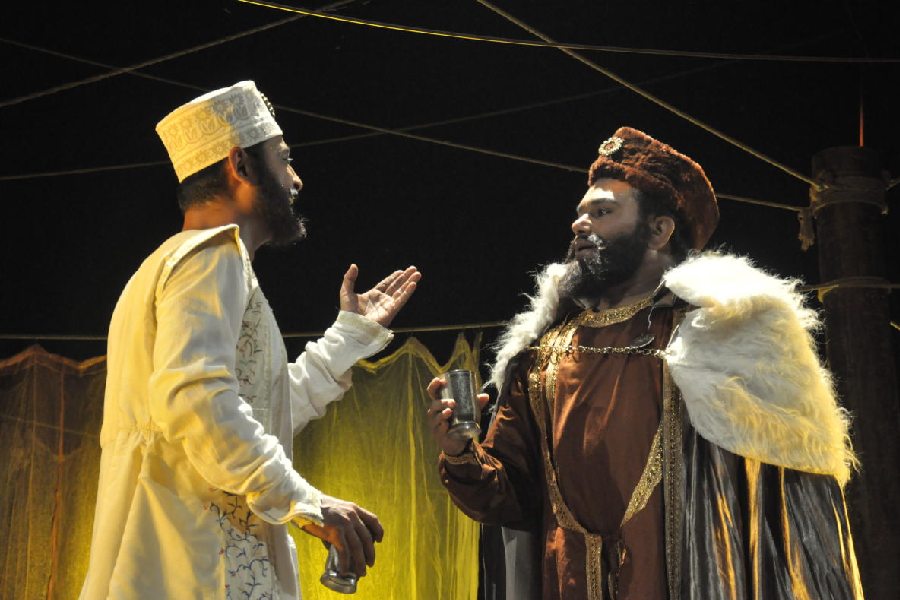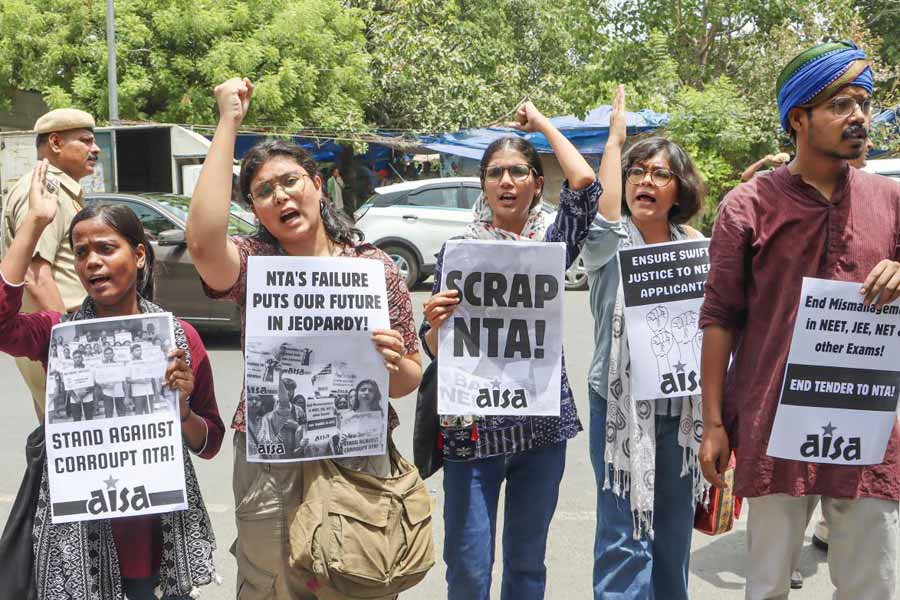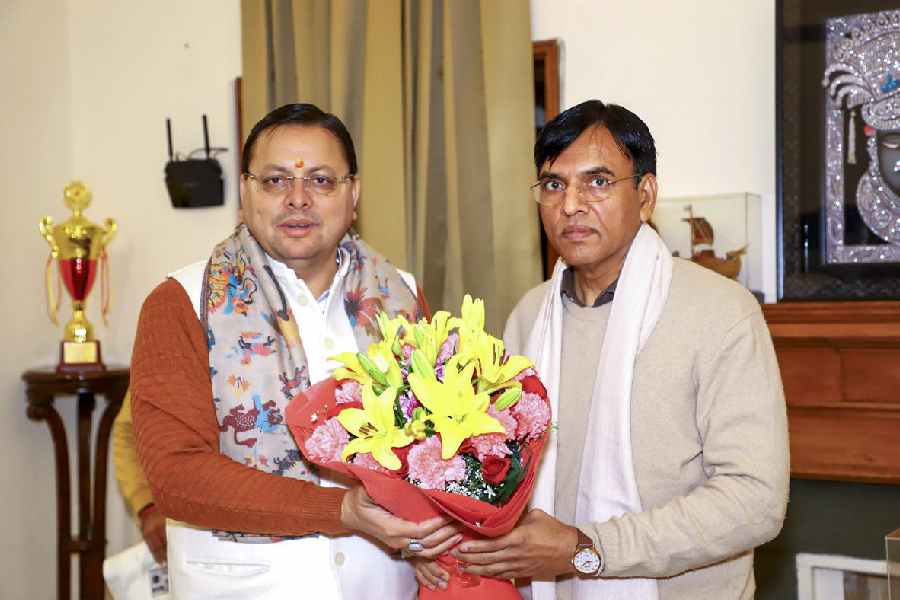Urhanta Tarader Chhaya has taken the Bengali proscenium theatre by storm — with good reason, one might add. This Samstab production, running close to two hours, marks the ultimate brilliance of Debasish Ray, the most sought-after playwright-director of our time. That Ray is a man for all seasons, equally adept at designing the stage and the lights as in taking charge of the special luminous effects that illuminate an otherwise prosaic auditorium space into something celestial, is in full display in Urhanta Tarader Chhaya. Samstab pulled all stops to accommodate Ray’s performers into its organisational fabric, providing every logistic support that a State-funded theatre group can afford. The outcome is most memorable.
Urhanta Tarader Chhaya — loosely based on mid-18th century events centred on Nadir Shah’s siege of Delhi and his ‘friendship’ with the Mughal emperor, Muhammad Shah — celebrates the stoicism that runs deep in the soil of the Indian subcontinent. Ray tweaks history to script an imaginary narrative soaked in blood and wine, in poetry and promiscuity. His expertise in energising the performance arena gets better with each work. This time he explores the metaphysical space amid a richly decorated tapestry of images. The play one stands out for another reason — its musicality. Rarely does one experience a musical where effective live singing (by Jaydeep Sinha and Monjima Chatterjee, in this case) and the playing of select instruments transform a stage production, where actors sing and dance to the tunes of Sufi melody and swing to the rhythmic momentum of whirling dervishes. Such cultural encounters demand an air of authenticity and Bhaskar Mukherjee, the choreographer, was spot on. Among the actors, Sanjib Sarkar and Tathagata Chowdhury matched each other in verve and virtuosity. Partha Sarathi Chandra and Amrita Mukhopadhyay — both Samstab warhorses — stole a march over the ensemble actors.
Having followed Ray’s theatre for the last 23 years, this reviewer feels relieved that he has, finally, been acknowledged for what he had been perfecting all these years — total theatre.











